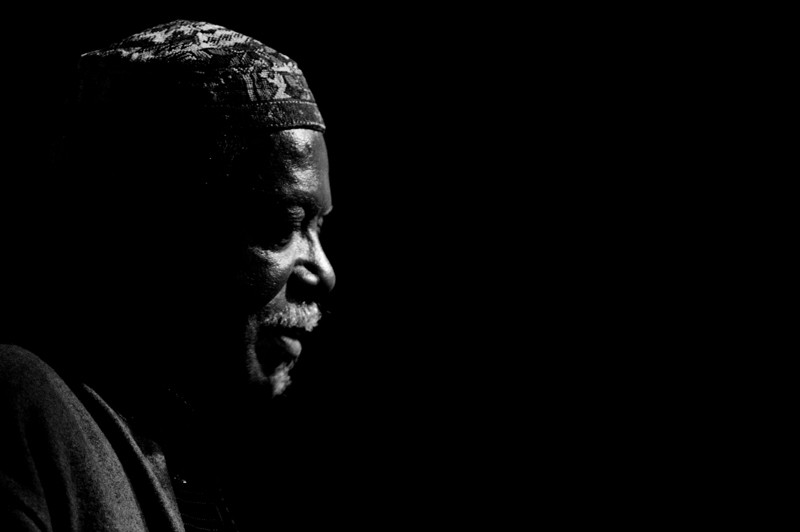David "Fathead" Newman

Newman was born in Corsicana, Texas, on February 24, 1933, but grew up in Dallas, where he studied first the piano and then the saxophone.[3] According to one account, he got his nickname “Fathead” in school when “an outraged music instructor used it as an epithet after catching Mr. Newman playing a Sousa march from memory rather than from reading the sheet music, which rested upside down on the stand.”[4]
Inspired by the jump blues bandleader Louis Jordan, Newman took up the alto saxophone in the seventh grade, and was mentored by former Count Basie saxophonist Buster Smith.[5] He went off to Jarvis Christian College on a music and theology scholarship but quit school after three years and began playing professionally, mostly jazz and blues, with a number of musicians, including Smith, pianist Lloyd Glenn, and guitarist bandleaders Lowell Fulson and T-Bone Walker.[3]
Newman met and befriended Ray Charles in early 1951 when Charles was playing piano and singing with the Lowell Fulson band.[5] Newman joined Charles’ band in 1954 as a baritone saxophone player, but later switched to tenor and became Charles’ principal saxophone soloist after tenor saxophonist Don Wilkerson left the band.[5][6]
Many of Charles’ seminal recordings during the 1950s and early 1960s feature a saxophone solo by Newman. These include hits such as “Lonely Avenue,” “Swanee River Rock,” “Ain’t That Love,” “The Right Time” (with Newman on alto sax), and “Unchain My Heart“.[7] Although his solos were short in duration, they became, as the New York Times later noted, “crucial to the Ray Charles sound.”[8] Atlantic Records’ producer Jerry Wexler, who signed Charles to the label, called Newman Charles’ “alter ego on tenor.”[9] Charles said that Newman “could make his sax sing the song like no one else.”[10] As Newman himself put it, “I became famous for playing 8-bar and 12-bar solos!”[5]
In 1959, Newman released his debut album as a leader, Fathead: Ray Charles Presents David Newman, with Charles playing piano.[5] He stayed with Charles’ band until 1964, and rejoined the group in 1970–1971.[5]
After leaving Charles’ band, Newman worked with Herbie Mann’s band in 1970-71, and recorded albums for Atlantic, Warner Bros., Prestige and Muse.[11] Newman did session work with a variety of artists, including Aretha Franklin, B.B. King, Joe Cocker, Dr. John, and with Natalie Cole on her Unforgettable album.[5] He also worked as a sideman with Jimmy Scott, B.B. King, and Lou Rawls.[2] He also scored films and performed in the Robert Altman film Kansas City and did a national tour with the band from that 1996 film for Verve records.[5] In 1990 he was nominated for a Grammy Award for recordings with Art Blakey and Dr. John.[4]
